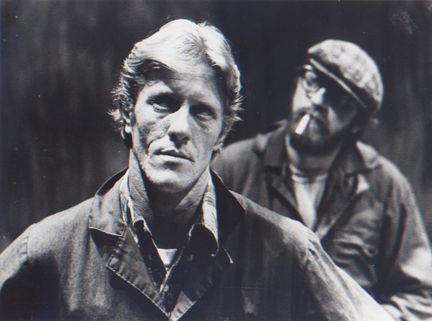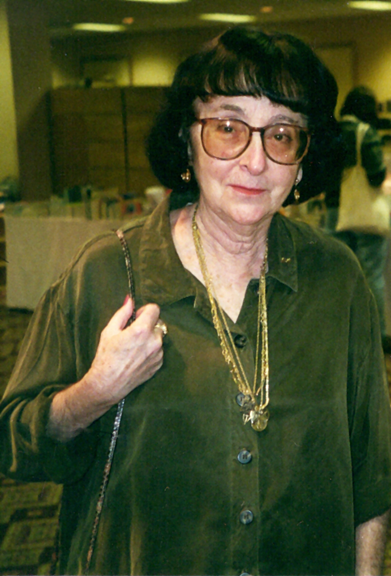By Frank Dougherty
The Philadelphia theater that did for Irish-American wakes what Tony n’ Tina’s Wedding did for Italian-American connubial bliss this month is marking 50 years of presenting preeminent American and European stage productions.
“The works of Irish playwrights and Irish-themed productions like Lafferty’s Wake have been an integral part of our repertory in the half-century history of our playhouse,” explained Deen Kogan, owner and operator of the Society Hill Playhouse.
Lafferty’s Wake, a spoof on how the Irish stand watch over the deceased prior to burial, was written by Susan Turlish, who began acting at the playhouse while still a teenager. The show ran four years.
“During our first full season, for example, we produced Brendan Behan’s The Quare Fellow and Ulysses in Nighttown, adopted from James Joyce’s Ulysses,” said Kogan.
“Nobody in Boston or New York City theater circles back then were presenting Irish plays on the scale in which we were staging them in Philadelphia,” she added.
The Society Hill Playhouse stands at 507 South Eighth Street, between Lombard and South. Constructed in 1901, it opened as David Garrick Hall. Deen and her late husband, Jay, converted it into their playhouse while Ike was in the White House.
The Theater Alliance of Greater Philadelphia in August presented a special recognition award to Deen Kogan and Jay for contributions made in every aspect of producing theater in Philadelphia. Jay Kogan died in November 1993.
The Society Hill Playhouse opened October 27, 1960, with an adaptation of The Deadly Game, a thriller by Friedrich Durrenmatt. The best seat in the house cost $2.50.
A Swiss playwright, Durrenmatt’s controversial works continue to be associated with theater of the absurd. Must still have something to do with the $2.50 opening night ticket.
Society Hill Playhouse remains an open house for playwrights on the cutting edge by producing the works of such controversial literary figures as Jean Paul Sarte, Jean Genet, Harold Pinter and Bertolt Brecht.
“The mission of Society Hill Playhouse has been to serve all segments of the community, both on a participant and spectator level…theater isn’t an elitist activity. We want to share the experience,” explained Kogan.
And few artists have played more of a participatory role in this philosophy than the playwrights who have celebrated the richness of the Irish experience.
Headlined productions by Irish playwrights have included Volunteers and Freedom of the City by Brian Friel, The Half-Promised Land by Maeve Binchy, Borstal Boy by Brendan Behan and The Ginger Man by J.P. Donleavy.
As well as Waiting for Godot by Samuel Beckett, A Moon for the Misbegotten by Eugene O’Neill, and Stephen D, a play based on the James Joyce novel A Portrait of the Artist as a Young Man.”
“Irish playwrights are marvelous wordsmiths. The richness of their characters reflects the human condition, and there’s nothing pretentious about their writing,” said Kogan.
“They became part of an important movement in theater after World War II. Jay and I were attracted to their work through Irish friends, journals and Irish and British newspapers accounts,” she continued.

This photograph made in 1979 from the Society Hill Playhouse's production of Volunteers by Irish playwright Brian Friel features actors Joe Breen (foreground) and Greg Gillespie (background).
Irish playwrights are a joy to do business with, too. When the Kogans decided to stage The Ginger Man, they contacted J.P. Donleavy in Ireland. “We didn’t use an agent. Donleavy himself granted the rights,” she recalled.
Deen and Jay met at Temple University. After their wedding in 1951, they moved to Colorado to earn advanced degrees in theater. A cruise to the Continent followed aboard the luxury liner USS United States.
“After finishing the European grand tour, we began working with the Neighborhood Players out of a settlement house on Bainbridge Street,” said Kogan.
They became more involved with local groups, with Deen doing the managing while Jay served primarily as director.
This shared passion led to a decision by the Kogans in 1959 to purchase the David Garrick Hall with its Victorian pressed tin walls and ceiling for $10,000.
“The building was a bingo church, according to the tenant, a fellow who identified himself as ‘Father Francis’,” recalled Deen.
“It took a year to renovate. We had to remove his altar before installing 250 seats in the main auditorium, all from the Academy of Music’s foyer theater.”
The playhouse today maintains a smaller space as well, its ground-floor Red Room Cabaret with 99 seats. A former scenery-building workshop, it was converted into the cabaret by Deen’s brother, Stephen Falk, an architectural engineer.
The playhouse on Tuesday, October 27, from 4-8:30 PM, will sponsor an open house for patrons as well as for writers, directors, actors and workers who have interacted with one another over the past five decades.
The playhouse has one of Philadelphia’s most distinctive logos, an abstract of a theater mask, devoid of emotion, set in an oval, designed by the late Igor Belinkoff, a stage designer and graphic artist.
Philadelphians who stayed home to watch TV, read a book or listen to the radio 50 years ago, as opposed to attending a playhouse production, had lots of options.
Gunsmoke was America’s number one TV show, followed by Wagon Train with Ward Bond. For laughs, viewers tuned to The Jack Benny Show.
The bookworms had options, too-among them Advise and Consent by Allen Drury, Sermons and Soda-Water by John O’Hara, and Hawaii by James Michener.
WIBG Radio-99 was spinning rock and roll hits with a vengeance. “If you’re ready, this rockin’ bird will fly,” boomed disc jockey Joe Niagara.
Chart busters included “Stuck on You” by Elvis Presley, “Alley-Oop” by the Hollywood Argyles, and “Cathy’s Clown” by the Everly Brothers.
Although the playhouse was the focal point of their personal and professional lives, the Kogans never made a living from the enterprise.
Deen worked as a public relations consultant, and managed a dress store in Upper Darby. She was at first reluctant to accept the retail position. But when it was pointed out that dresses, too, were costumes, the drama major responded with alacrity.
“I managed the shop for years. It was a very pleasant experience,” said Kogan.
Jay returned to school to earn a degree in public administration at the University of Pennsylvania. He worked with the Philadelphia Recreation Department as a drama and cultural specialist, producing plays and outdoor events.He later assumed the role of a training officer with the Department of Licenses & Inspections, before being named a Philadelphia Civil Service Commissioner.
A public servant with a strong sense of social justice in the workplace, Jay Kogan was the founding president of District Council 47, the “white collar” union for municipal employees.
One of the playhouse’s single most popular shows ever, Nunsense, was the first such production outside of New York City. It was a trend setter that set a record.
“It was scheduled to run five weeks, but instead ran for 10 years. It remains the longest running musical comedy in Philadelphia theater history,” said Deen, who operates the theater with three assistants.
For the fall 2009 season, Kogan is staging a new musical comedy about baby boomers called The Kids Left. The Dog Died. Now What?
“There are 78 million baby boomers,” reads its tag line. “This is a musical about 20 of them.” It opens at 8 PM on Thursday, October 15.
When not producing plays, Kogan enjoys reading, traveling, rooting for the Phillies, and planning conventions for noir novelists affiliated with Mystery Writers of America, International Association of Crime Writers, and Sisters in Crime.
On New Year’s Day morning, she struts to City Hall to serve as a Mummer Parade judge, reviewing the antics of those masters of mirth in the Comic Division.
What little free time left is devoted to the great love of her life after the Society Hill Playhouse, her pet dog. “He’s a 17-month old Doberman named Tonka, just like in the toy.”


